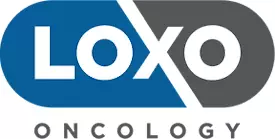Summary of recent progress in the field of cancer (2018.01.04) January 04, 2018 Source: WuXi PharmaTech 1. New drugs for prostate cancer are eligible for FDA priority review Janssen has announced that the US FDA has granted its new drug application (NDA) priority review qualification for the new drug apalutamide. Apalutamide is a new generation of oral androgen receptor (AR) inhibitors developed by Janssen. It will be used to treat unmetastatic castration-resistant prostate cancer (CRPC). Priority review means that the FDA will complete the approval process within six months of receiving the NDA. Prostate cancer is a common malignancy in men. Since androgen can stimulate the growth of prostate cancer cells, in addition to surgery for the treatment of early prostate cancer, the common treatment is androgen deprivation therapy (ADT). However, these patients treated with ADT will eventually develop resistance to ADT and develop CRPC. About 10% - 20% of prostate cancer patients will turn to CRPC within 5 years after diagnosis. These patients have a very high risk of developing tumor metastasis. How to treat these patients is still an unmet medical need. The aparutamide developed by Janssen is a new generation of AR inhibitor, which prevents the androgen from binding to the receptor and prevents the transfer of AR into the nucleus of tumor cells, thereby inhibiting the action of androgen on tumor cell growth. Janssen’s new drug application is based on the results of a clinical phase 3 trial of SPARTAN in patients who did not metastasize CRPC with apalutamide completed in June 2017. Although these patients continue to receive ADT therapy, their PSA index is still rising rapidly. The primary endpoint of the trial was metastasis-free survival (MFS). Janssen will report the results on February 8th at the American Society of Clinical Oncology Genitourinary Cancers Symposium. "For prostate cancer patients, if the tumor spreads to other parts of the body, the prognosis will be significantly worse. Therefore, patients with untransferred CRPC need more medical options to delay the progression of the disease, thereby improving long-term results," Yangsen's late oncology Dr. Craig Tendler, Vice President of Development and Global Medical Affairs, said: "We are pleased that the FDA has approved the priority of reviewing and recognizing the potential of apalutamide to treat these patients." 2. Breast cancer triple therapy is approved by the FDA for early breast cancer Recently, Roche Group member Genentech announced that the US FDA has approved Perjeta (pertuzumab, pertuzumab) plus herceptin (trastuzumab, trastuzumab) and chemotherapy (referred to as Perjeta-based). Treatment regimen triple therapy as a postoperative adjuvant therapy for HER2-positive, early-stage breast cancer (EBC) patients at high risk of recurrence. Patients need to receive a Perjeta-based adjuvant treatment program for one year (up to 18 cycles). The FDA has also previously approved the accelerating approval of this pre-operative neoadjuvant therapy for this Perjeta-based treatment regimen to be fully approved for HER2-positive, locally advanced, inflammatory or early-stage breast cancer (more than 2 cm in diameter or lymph node positive) )patient. Patients who receive the Perjeta neoadjuvant regimen should continue to use Perjeta and Herceptin after surgery to complete a year of treatment. Breast cancer is one of the most common forms of cancer in women. About one in five breast cancer patients are HER2 positive. The HER2 protein belongs to the human epidermal growth factor receptor (EGFR) family, which can dimerize with other family members to form dimers, which in turn initiate downstream cellular signaling pathways that promote cell proliferation and tissue growth. Therefore, HER2 is a breast cancer. A very attractive target in treatment. Perjeta is a monoclonal antibody drug targeting HER2 that is designed to prevent the HER2 receptor from forming a dimer with other EGFR family members, thereby blocking downstream cell signaling and suppressing tumor growth. The combination of Perjeta and HER2 may also lead to the body's immune system to clear cancer cells. Both Perjeta and Herceptin work by binding to the HER2 receptor, but the binding site is a different position on the HER2 protein, thus providing a more comprehensive dual inhibition of the HER signaling pathway, which is more effective in suppressing tumor cells. Growing and surviving. The FDA approval was based on the results of a clinical phase 3 study of APHINITY. APHINITY is a randomized, double-blind, placebo-controlled, international multicenter, dual-arm study designed to evaluate the efficacy of triple-adjuvant therapy with Perjeta plus Herceptin and chemotherapy compared with Herceptin and chemotherapy dual therapy And security. The study included 4,805 HER2-positive, operable EBC patients. The primary endpoint of the study was invasive disease-free survival (iDFS). Secondary endpoints included cardiac and overall safety, overall survival (OS), disease-free survival (DFS), and health-related quality of life. This study will continue to follow up participants for ten years. The median time for APHINITY in the initial analysis was 45.4 months. The results showed that the triple therapy of Perjeta plus Herceptin and chemotherapy significantly reduced infiltration compared to the dual therapy with Herceptin and chemotherapy in the overall study population. The risk of recurrence or death of breast cancer was 18% (HR=0.82, 95% CI 0.67-1.00, p=0.047). Specific results in the breast cancer patient group including high-risk patients with negative lymph node or hormone receptor negative were as follows: lymph node positive subgroup (HR=0.77, 95% CI 0.62-0.96), lymph node negative subgroup (HR=1.13, 95) %CI0.68-1.86), hormone receptor positive subgroup (HR=0.86, 95% CI 0.66-1.13), hormone receptor negative subgroup (HR=0.76, 95% CI 0.56-1.04). Perjeta has also been approved for use in combination with Herceptin and pacetaxel for HER2-positive, breast cancer that has spread to different parts of the body (metastatic) and has not been treated with metastatic breast cancer for anti-HER2 therapy or chemotherapy. ▲ Dr. Sandra Horning, Chief Medical Officer and Head of Global Product Development, Genentech (Source: Genentech Official Website) “The goal of treating breast cancer as early as possible is to provide people with the best chance of cure. Although we are getting closer to this goal, there are still many patients who will relapse and have cancer metastasis,†said Genentech Chief Medical Officer and Global Product Development Leader Dr. Sandra Horning said: "The approval of Perjeta today means that early breast cancer patients with a high risk of HER2-positive recurrence have a clinically significant new treatment option to reduce their chances of recurrence." 3. Loxo's accurate anticancer drug is submitted for marketing application Bayer recently announced that Loxo Oncology, a partner of the company, has begun to submit a new rolling drug application (NDA) for larotrectinib to the US FDA. Larotrectinib will be used to treat adult or child solid tumor patients carrying the NTRK fusion gene. Their tumors cannot be removed or have metastasized, require systemic treatment, and the symptoms continue to worsen or have no other treatment options after receiving other therapies. Loxo Oncology is expected to complete the NDA application early this year. The tropomyosin receptor kinase (TRK) signaling pathway is an important signaling pathway regulating cell communication and tumor growth, while NTRK is a gene encoding TRK. In rare cases, the NTRK gene fuses with other genes, resulting in an uncontrolled TRK signaling pathway that promotes tumor growth. Larotrectinib is an oral, potent and selective TRK inhibitor developed by Bayer and Loxo. By directly targeting TRK, it can turn off signaling pathways that promote tumor growth. Larotrectinib has been awarded the FDA for breakthrough therapeutic identification and orphan drug status, and has shown good efficacy in cancer patients carrying the TRK fusion gene in several clinical trials. At the 2017 American Society of Clinical Oncology (ASCO) annual meeting, Loxo released data on the efficacy of larotrectinib. The data showed that 76% of patients with TRK-fused tumors achieved objective response (ORR). "More and more studies have shown that TRK is a potential target for the treatment of cancer. Although TRK fusion is very rare, it is widely found in a wide variety of rare tumors in adults and children," said Carsten Brunn, president of Bayer USA. Mr. said: "We are very pleased to start the rolling new drug application process for larotrectinib, which brings us one step closer to the goal of delivering this treatment option to patients." 4. TKI inhibitors have been approved by the FDA to become first-line therapy for advanced kidney cancer Exelixis recently announced that the US FDA has approved the expansion of CABOMETYX (cabozantinib) indications for first-line treatment of patients with advanced renal cell carcinoma (RCC). The priority review and approval of CABOMETYX is based on a clinical phase 2 trial evaluating the outcome of previously untreated RCC patients, which shows that CABOMETYX is superior to current standard therapy in progression-free survival (PFS). Kidney cancer is one of the ten most common cancers in the United States, and clear cell renal cell carcinoma (CCRCC) is the most common type of kidney cancer in adults. If found early, RCC's five-year survival rate is higher, but for advanced or metastatic RCC patients, their five-year survival rate is only 12%, and there is no clear cure. It is estimated that 14,000 patients in the United States need first-line therapy to treat advanced RCC every year, so this group still has a large medical need to be met. Developed by Exelixis, CABOMETYX is a small molecule inhibitor of tyrosine kinase against MET and VEGFR, which also inhibits the activity of AXL and RET. Most CCRCC cells have lower levels of von Hippel-Lindau protein, resulting in higher levels of proteins such as MET, AXL and VEGF. These proteins promote angiogenesis, as well as tumor growth and invasion. Moreover, the escape pathway provided by MET and AXL may contribute to the resistance of RCC to VEGF receptor inhibitors. Therefore, CABOMETYX, which inhibits these proteins, has a good tumor suppressing effect in RCC. The FDA's decision is based on the results of the clinical phase 2 trial CABOSUN, a randomized, open-label, actively controlled clinical phase 2 trial that included 157 patients with advanced RCC diagnosed with intermediate or low risk according to the IMDC criteria. Patients were randomized in a 1:1 ratio and received either CABOMETYX (60 mg once daily) or sunitinib (50 mg once daily for 4 weeks, followed by 2 weeks rest). The primary endpoint was the progression-free survival (PFS) of the patient. Secondary endpoints included overall survival (OS), objective response rate (ORR), and safety. Patients enrolled in the trial are required to have a locally advanced or metastatic CCRCC with an ECOG status of 0-2, which must be moderate or low risk according to the IMDC criteria and has not been treated with previous RCC regimens. The trial reached the primary endpoint for improving patient PFS. According to data from an independent radiology review committee, disease progression or mortality was reduced by 52% in patients receiving CABOMETYX (HR 0.48, 95% CI 0.31-0.74, two-tailed P = 0.0008), with statistically significant clinical significance. The median PFS of CABOMETYX was 8.6 months, and sunitinib was 5.3 months, which is an improvement of 3.3 months (62%). ▲ Dr. Michael M. Morrissey, President and CEO of Exelixis (Source: Exelixis official website) "CABOMETYX approved today is a real victory for patients with advanced renal cell carcinoma in the United States, and now they have a new option for first-line treatment," Dr. Michael M. Morrissey, President and CEO of Exelixis, was approved for the drug. “We are very pleased with CABOMETYX's expanded indications and are ready to bring CABOMETYX to all eligible patients who may benefit from this important treatment option from now on,†said the day. Reference materials: [1] US FDA Grants Priority Review to Janssen for Apalutamide as a Treatment for Non-Metastatic Castration-Resistant Prostate Cancer [2] FDA Approves Genentech's Perjeta (pertuzumab) for Adjuvant Treatment of Specific Type of Early Breast Cancer [3] Bayer Announces that Loxo Oncology Initiates Rolling NDA Submission for Larotrectinib for the Treatment of TRK Fusion Cancers [4] Exelixis Announces US FDA Approval of CABOMETYX (cabozantinib) Tablets for Previously Untreated Advanced Renal Cell Carcinoma Original title: Summary of recent progress in the field of cancer (Phase 50) Mulch Films are a revolution in the agriculture industry as it presents an economical and environment friendly protective solution for crops and soil. It not only maintains the quality of soil but also aids in the faster growth of plants. By reflecting light, it ensures control on growth of weeds as photosynthesis process will not be carried out. Mulch Film,Sliver Black Mulching Film Sheet,Mulch Film For Greenhouse,Polyethylene Mulch Film JIANGSU SKYPLAN GREENHOUSE TECHNOLOGY CO.,LTD , https://www.alibabagreenhouse.com




